In the 1960s, paleontologists found rodent fossils in the San Jose Formation of Uruguay in South America. They have teeth that share many similarities with water guinea pigs – the largest rodent in the world today.
In 1966, paleontologists JC Francis and A. Mones named this prehistoric rodent Josephoartigasia, named after Uruguay’s independence movement leader, JJose Gervasio Articas (1764-1850 ), their full scientific name is Josephoartigasia magna (Josephoartigasia monesi).

Jose Gervasio Articas.
In 1987, also in the San Jose Formation, paleontologists discovered an almost complete skull fossil. Surprisingly, the newly discovered skull fossils are huge, but there are no scientific studies and reports for the next 20 years.
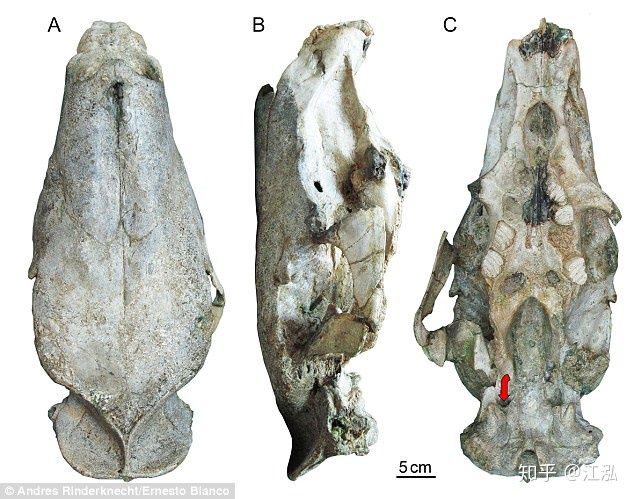
In 2007, researchers from the Uruguay Museum of History and Anthropology described and analyzed the skull and identified it as belonging to Josephoartigasia monesi and were able to classify them as Capybara (guinea pigs). country). Immediately after this research was published, it created a surprise for the whole world because no one could think that they were really that big, and this also made them an animal. The biggest rodent ever existed on our planet.
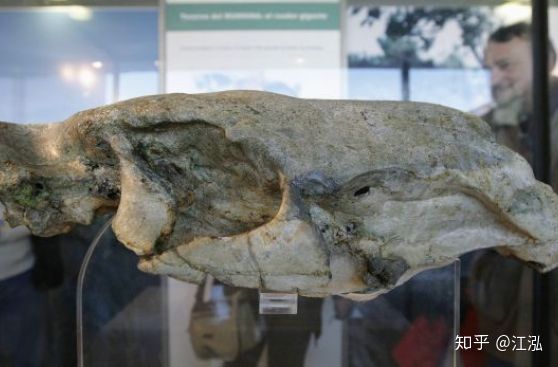
Fossilized skull of a Josephoartigasia monesi.
Today, the world’s largest rodent is the capybara water guinea pig, which lives in Paraguay, Argentina, Brazil, Bolivia, Colombia, Venezuela and most of the north of South America, compared to other rodents. Their size is still very large with a body length of 1.3 meters, height to shoulders is 0.5 meters and weight from 27 to 70 kg.

Capybara guinea pig.
Although capybara is a very large species of rodents, when compared to Josephoartigasia monesi, their size only belongs to the form of “foul chips”. Judging from fossil samples of Josephoartigasia monesi, it is known that they have a body length of up to 3 meters, a height of 1.5 meters when counting to the shoulders and weighs about 1 ton, nearly the size of a gaur!
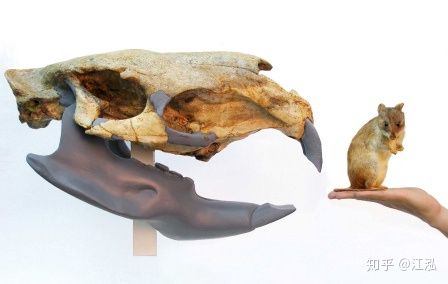
Compare the skull of Josephoartigasia monesi with the average size of modern rodents.
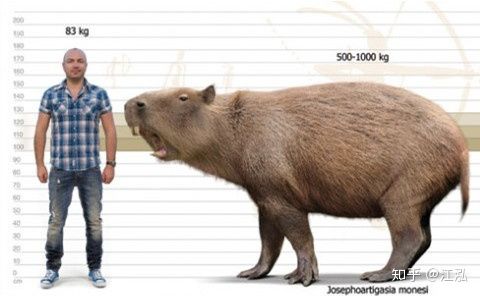
Compare the size of a Josephoartigasia monesi with the size of an adult.
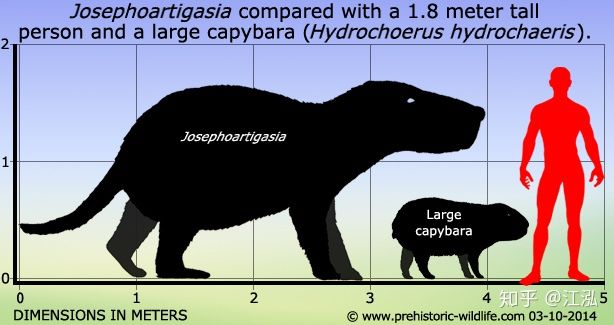
The appearance of Josephoartigasia monesi is almost similar to that of capybara guinea pigs, which have a thick coat of fur covering their whole body. Their heads are up to 0.53 meters long, their noses facing forward with eyes close to the top of their heads and small round ears always facing back.
They have large and long incisors in both the upper and lower jaws, the length of which increases to about 30 cm. Like other species of rodents, their teeth are constantly growing throughout their lives, so they must always be abraded to get the right length.
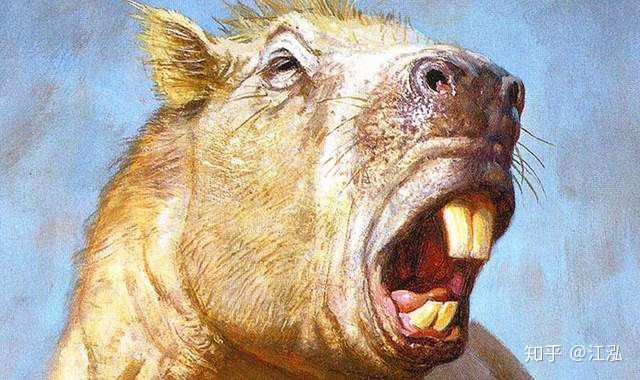
Ancient Josephoartigasia monesi had short necks and stout bodies, filled with fat tissue. They often walk and run on all fours like modern bison. Just like water guinea pigs, they have four toes on the front foot and three toes on the back foot, linked by a membrane that allows them to swim. Unlike most modern rodents possessing a long tail, they usually do not have a tail or a much shorter tail when compared to body proportions.
Paleontologists speculate that the Josephoartigasia are typical social animals, often gathering together as a group of 10 to 20 members and constantly communicating with each other in many ways. Special sounds include screams, barks, whistles, screeches, and information transmission via different volume and frequency. And in that way, the Josephoartigasia herds would be “very mouthy” components in the natural world.
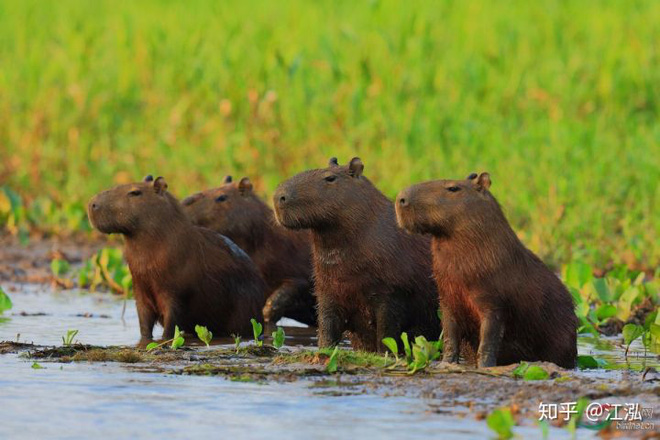

In addition, these giant ancient rats have a very good sense of smell, and they often use their unique scents to identify territories, attract females during mating or communicate with members. other in the herd.
Josephoartigasia monesi lived in South America from the Pliocene period to the beginning of Pleistocene, about 4 to 2 million years ago. At that time, South America was a wild world, full of extinct prehistoric animals, many of them fierce predators like saber-tooth tigers, Kelenken, Arctotherium, .
When faced with danger, these giant mice will use their front teeth as combat weapons and its bite force can reach 400 kg, which is equivalent to the bite force of a tiger.
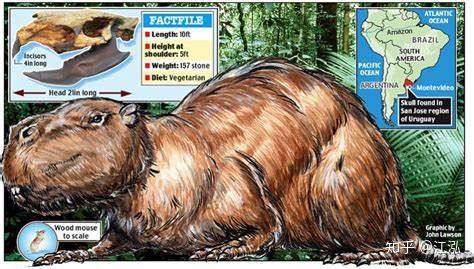
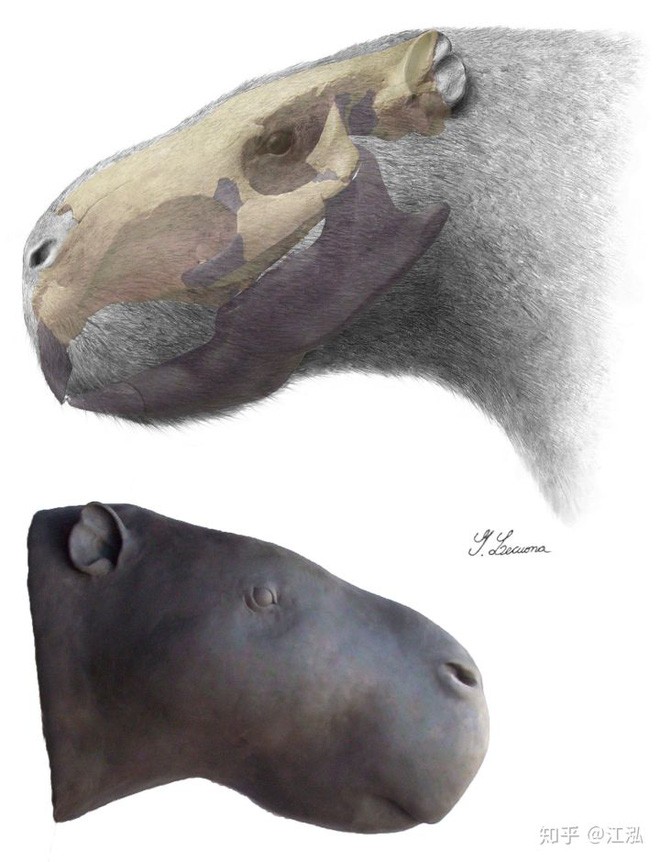
They usually live in areas near lakes and rivers and are very good at swimming, their staple food is aquatic plants, and sometimes they also eat leaves and fruits.
Josephoartigasia monesi possesses a body as large as a bull, and the strength from that body is an advantage in survival in the wild. But as the climate in South America dried up, the area suitable for them to exist and grow gradually shrunk, which led them to evolve to shrink their bodies to adapt to themselves. However, and when they can no longer adapt, they have to choose the path of extinction.
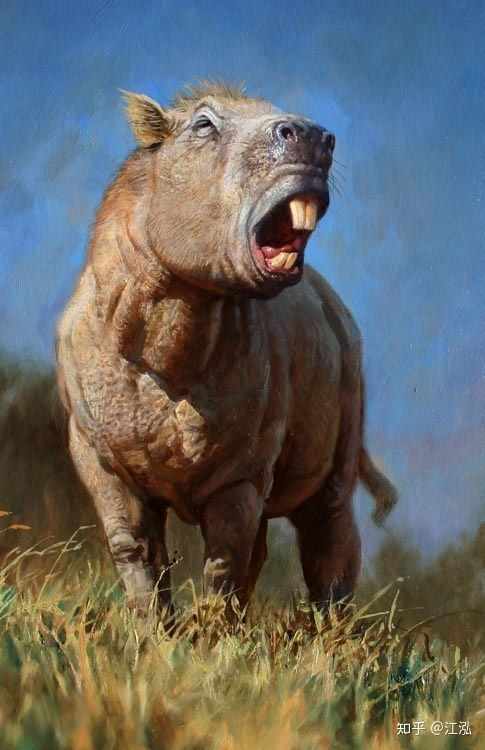
But anyway, today we can still see the water guinea pigs that look quite similar to them, only that it’s a version that has been scaled down so many times.